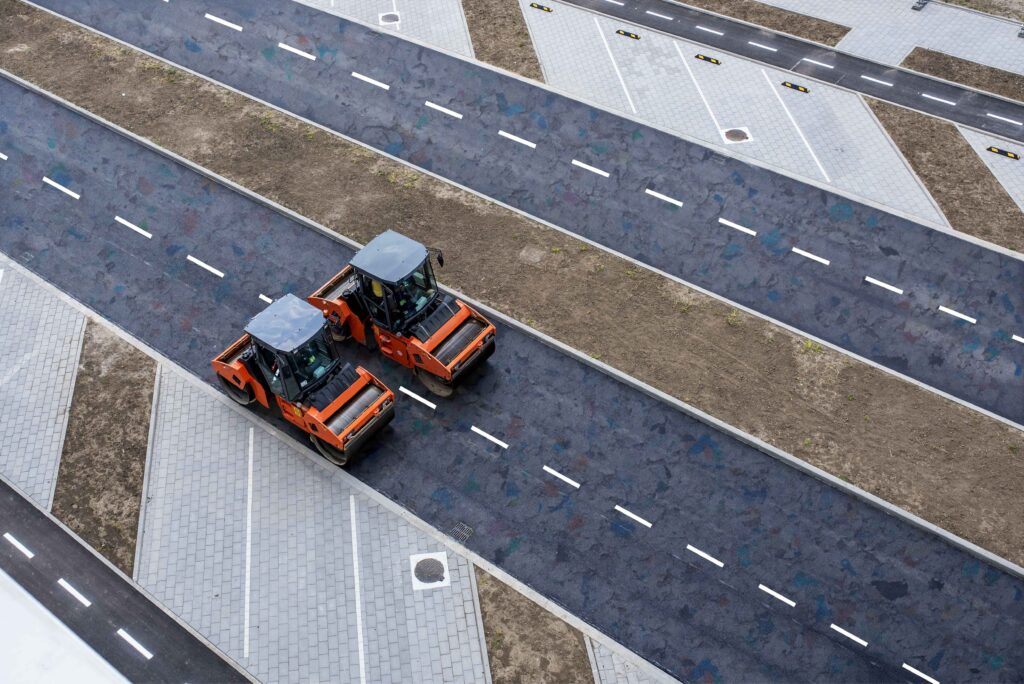Plastic pollution is one of the most pressing environmental issues of our time. However, innovative solutions are turning this waste into a valuable resource. One such solution is using plastic waste in road construction, a method that is gaining traction in India.
The Innovation

Benefits of Plastic Roads
- Durability: Roads constructed with plastic waste are more resistant to wear and tear, especially under extreme weather conditions such as heavy rains and high temperatures.
- Cost-Effective: The use of plastic waste reduces the amount of bitumen required, leading to significant cost savings. For example, the Indian government saves approximately ₹30,000 per kilometer of road constructed using plastic waste.
- Environmental Impact: Utilizing plastic waste in road construction helps reduce the volume of plastic that would otherwise end up in landfills or the ocean, contributing to a reduction in environmental pollution.

Government Initiatives
The Indian government, under the leadership of Union Minister for Road Transport and Highways, Nitin Gadkari, has been a strong proponent of using plastic waste in road construction. In 2016, Gadkari announced a mandate for the use of plastic waste in road construction, which has since led to the construction of over 100,000 kilometers of roads using this technology. The government aims to double this achievement in the near future.
Case Studies and Success Stories
Several projects across India have successfully implemented this technology. For instance, roads in Tamil Nadu, Maharashtra, and Karnataka have demonstrated the effectiveness and durability of plastic roads.
- Chennai – The municipality built the first 1000km of plastic roads in 2004 at Kambainallur, Dharampuri district.
- Pune – The Pune Municipal Corporation built plastic roads in NaviPeth, Dattawadi, Katraj, Magarpatta City, Koregaon Park, and Yerawada Road.
- Jamshedpur – Jamshedpur Utility Services and Company, a subsidiary of Tata Steel constructed 12-15km of plastic road in the steel city.
- The MPRRDA has constructed 35km of plastic road in 17 districts of Madhya Pradesh
- In Meghalaya, 430kg of plastic waste was converted to built a kilometre long road in 2018
- The National Highways Authority of India (NHAI) has built 703km of National Highways using plastic.
These projects highlight the potential of plastic waste to transform the infrastructure sector while addressing the issue of plastic pollution.
Challenges and Future Prospects
Despite its many benefits, the use of plastic in road construction faces challenges, including the collection and processing of plastic waste and the need for widespread adoption of this technology. Continued research and government support are crucial for overcoming these challenges and expanding the use of plastic roads across the country.
Conclusion
The use of plastic waste in road construction is a promising solution to the dual problems of plastic pollution and infrastructure development. With the support of government initiatives and innovative technologies, India is paving the way for a more sustainable and environmentally friendly future.
